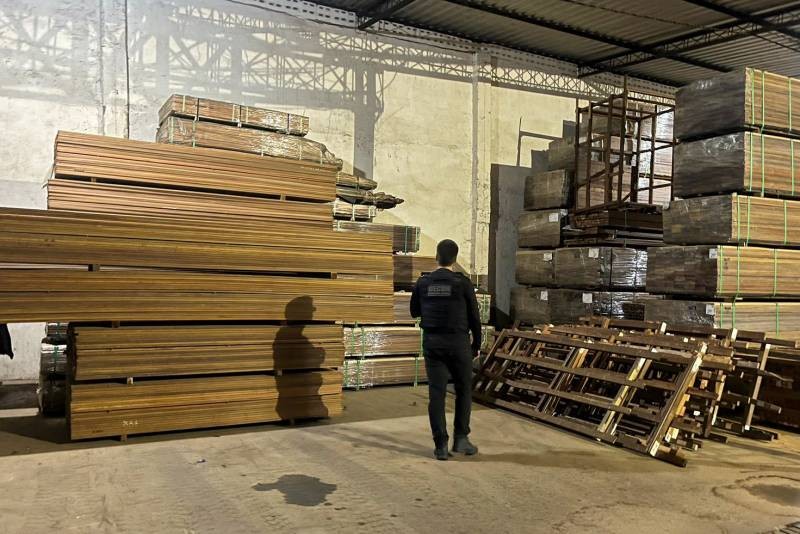Among the seven people detained is a former employee of the Pará Environmental Secretariat (SEMAS), the agency said. Officers also executed nine search and seizure warrants and froze bank accounts.
The Amazon rainforest was long considered the planet’s largest carbon sink before severe deforestation caused parts of the forest to emit more carbon dioxide than they can absorb, according to scientists cited by the Council on Foreign Relations.
“Deforestation is second only to the burning of fossil fuels as a source of greenhouse gas emissions that cause climate change,” stated the American think tank that specializes in U.S. foreign policy and international relations.
Brazil has been trying to curb deforestation for years with only partial success.
Tuesday’s Operation Dark Wood took place more than two years after OCCRP and piauí, OCCRP’s member center in Brazil, published a story revealing a criminal scheme that enabled the illegal extraction and sale of timber.
According to the Civil Police, investigations began already in 2019 after SEMAS alerted them about possible forged documents being used to simulate auctions of forest products allegedly conducted by two cities in southwestern Pará.
According to the forged documents, two companies won those fictitious auctions and introduced fraudulent forest permits into the Forest Products Commercialization and Transportation System (Sisflora).
The companies, in fact, ‘laundered’ wood from illegal deforestation, according to Civil Police Chief Tainan Carqueija from the State Directorate for Combating Corruption (DECOR).
Civil Police Chief Ana Paula Fernandes Mattos, who also works at DECOR and participated in the operation, told OCCRP in an interview that she cited the story published by piauí in a request for a precautionary measure sent to the judiciary. "It was a very well-explained story. It narrated in detail how the fraud occurred."
A Drug Trafficker Inside the Environmental Secretariat
The 2022 OCCRP and piauí investigation detailed how the fraud scheme disguised the origins of illicit wood, which was then exported to the United States with a huge profit margin.
The yellow Ipê, a Latin American wood valued for its resistance and durability, is one of Brazil's most expensive woods, sold in some stores in the United States for up to $6,400 per cubic meter.
Its popularity also made this endangered species a goldmine for criminals. Agents of the Brazilian Institute of Environment and Renewable Natural Resources, IBAMA, estimated that the fraud scheme yielded about 27 million reais in profit, approximately US$7.2 million at the time.
Victor André Holanda Pessoa, who began working at SEMAS in January 2019, was one of the suspects of forging documents that allowed the illegal sale of wood. At that time, he was under investigation for drug trafficking.
In 2018, the Brazilian Federal Police seized more than 500 kilograms of cocaine base paste that allegedly belonged to Pessoa and the First Capital Command (PCC), Brazil's largest criminal organization he was connected with.
In August 2020, Pessoa was one of 33 people arrested and accused of participating in an international drug trafficking scheme. The police estimated that during the two years of investigation, about 11 tons of cocaine belonging to the traffickers were seized in Brazil and Europe.
Operation Dark Wood
Among those detained on Tuesday are sawmill owners and a former SEMAS employee who worked with Pessoa.
The arrests took place in various locations in Pará, including Outeiro, Uruará, Novo Progresso, and Santa Bárbara do Pará, as well as one arrest made in the Federal District.
The identities of the suspects and the names of the companies have not been disclosed by the police. However, a police source who worked on the investigation told reporters that Pessoa was under investigation for the SEMAS fraud but that he was not targeted by an arrest warrant in Operation Dark Wood because he had died.
Reporters obtained documents proving that Pessoa was murdered on January 25 last year. A person close to him, who requested anonymity for fear of reprisals, told reporters that the murder had something to do with the sale of his farm.
According to this source, the property's buyers supposedly ordered his execution.



